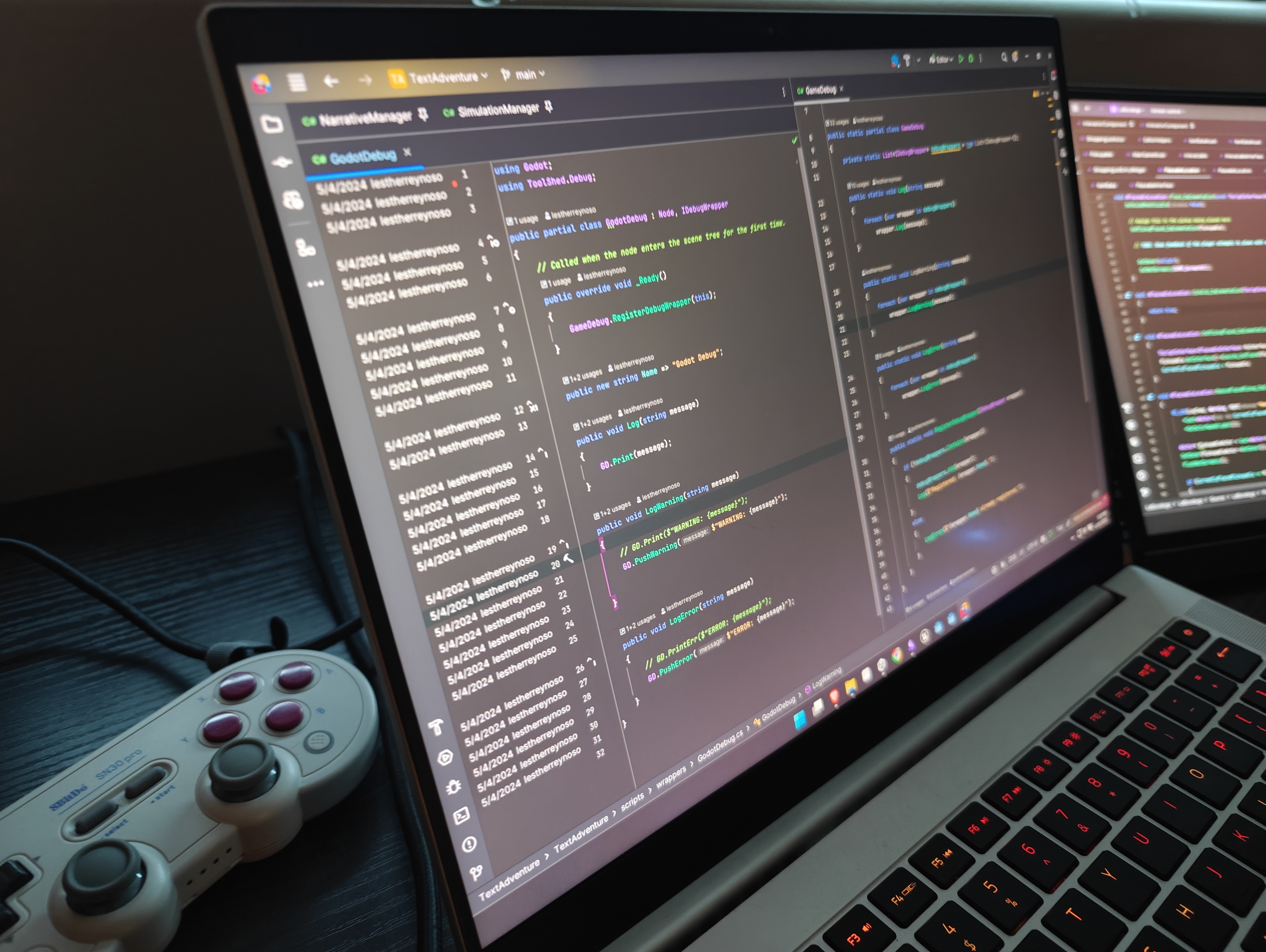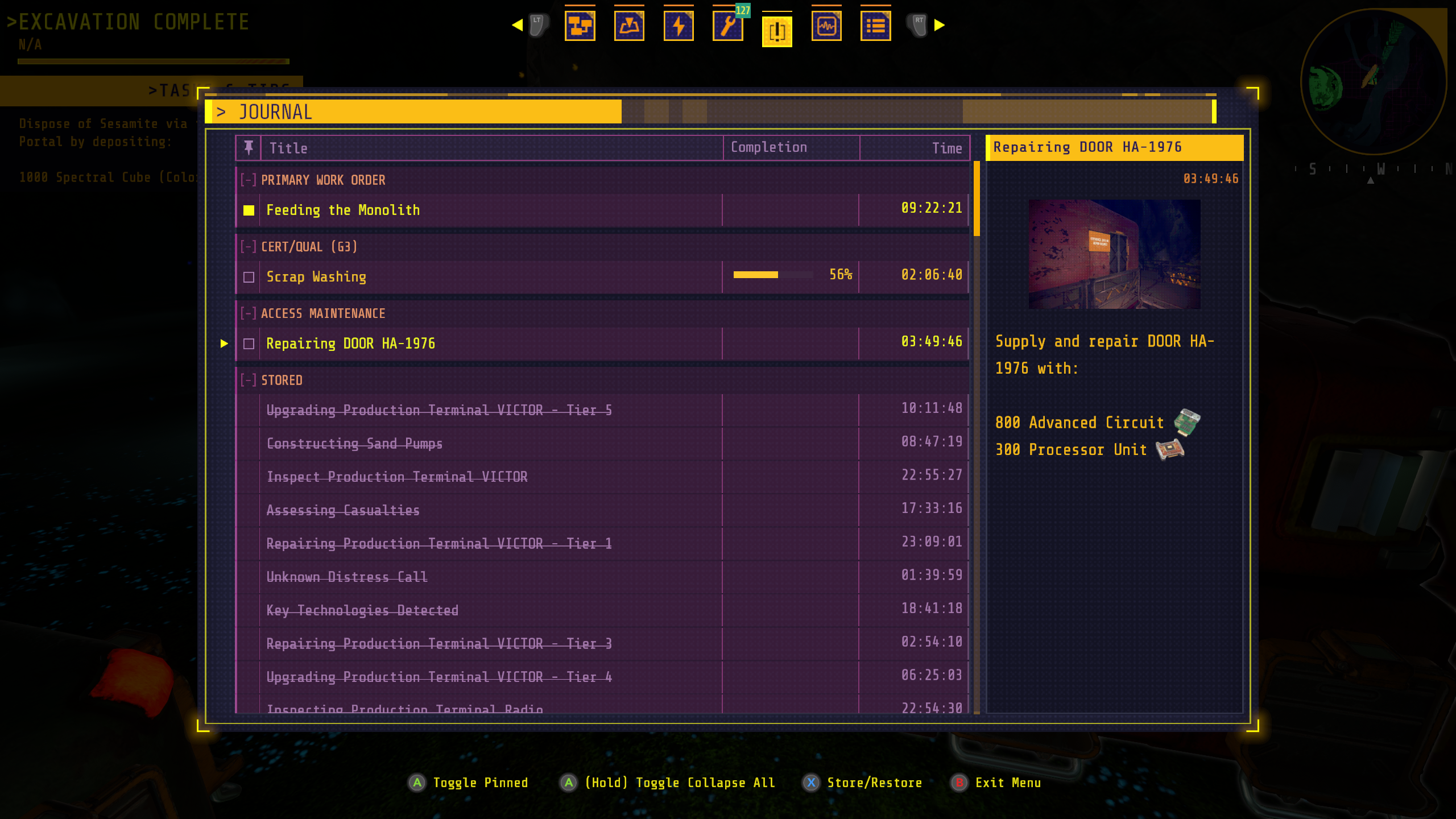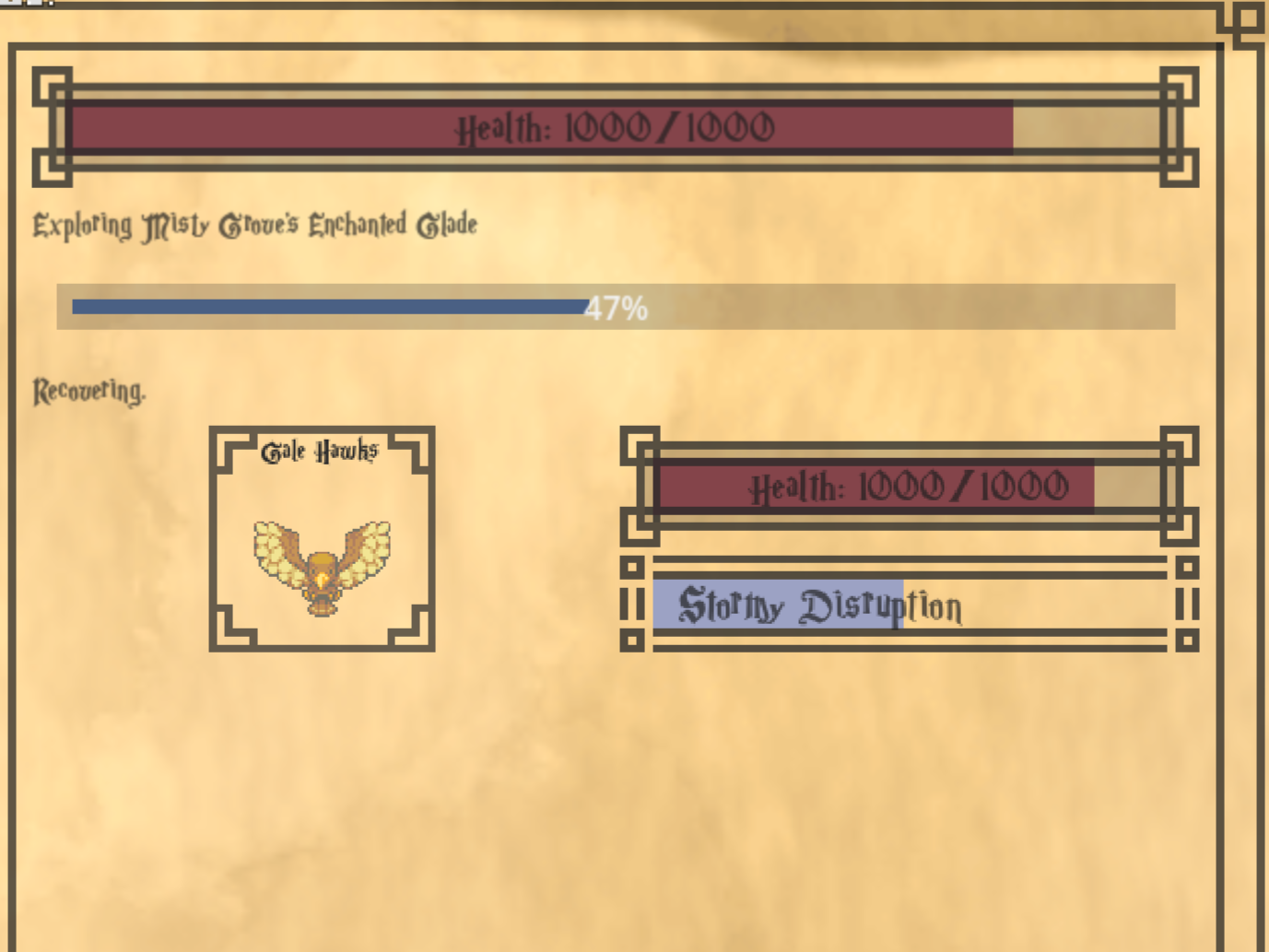Porting a project from Unity to Godot as a solo developer introduced a need I hadn’t encountered before:
How do I retain the same project architecture and utility layer, while respecting the different debug output conventions of each engine?
Rather than littering the codebase with #if UNITY or #if GODOT directives or duplicating systems, I created a simple debug abstraction to keep my game code engine-agnostic.
The Goal
As part of my effort to reuse as much code as possible across engines, I wanted to:
- Preserve the same GameDebug.Log(),
GameDebug.Warning(), andGameDebug.Error()calls from the Unity project. - Swap out the underlying implementation depending on the engine.
- Keep engine-specific code decoupled from game systems and shared utilities.
The Solution
I created a debug routing layer using a simple interface-based approach:
- A pure C# static class
GameDebugused by all systems. - An interface
IDebugWrapperrepresenting the debug message handler. - An engine-specific implementation (
GodotDebugin this case) hooked into Godot’sGD.Print(),GD.PushWarning(), etc.
IDebugWrapper Interface
public interface IDebugWrapper
{
string Name { get; }
void Log(string message);
void LogWarning(string message);
void LogError(string message);
}
This interface defines the core debug methods used by GameDebug, allowing any backend to plug in.
GameDebug Static Class
public static partial class GameDebug
{
private static List<IDebugWrapper> debugWrappers = new List<IDebugWrapper>();
public static void Log(string message)
{
foreach (var wrapper in debugWrappers)
wrapper.Log(message);
}
public static void LogWarning(string message)
{
foreach (var wrapper in debugWrappers)
wrapper.LogWarning(message);
}
public static void LogError(string message)
{
foreach (var wrapper in debugWrappers)
wrapper.LogError(message);
}
public static void RegisterDebugWrapper(IDebugWrapper wrapper)
{
if (!debugWrappers.Contains(wrapper))
{
debugWrappers.Add(wrapper);
Log($"Registered: {wrapper.Name}.");
}
else
{
LogError($"{wrapper.Name} already registered.");
}
}
}
This class serves as the entry point for all debug messages in the game code. It’s engine-agnostic and delegates to the underlying implementation.
GodotDebug Implementation
using Godot;
public partial class GodotDebug : Node, IDebugWrapper
{
// Called when the node enters the scene tree for the first time.
public override void _Ready()
{
GameDebug.RegisterDebugWrapper(this);
}
public new string Name => "Godot Debug";
public void Log(string message)
{
GD.Print(message);
}
public void LogWarning(string message)
{
GD.PushWarning($"WARNING: {message}");
}
public void LogError(string message)
{
GD.PushError($"ERROR: {message}");
}
}
In Godot, this class binds GameDebug to Godot’s GD.Print(), GD.PrintErr(), etc., ensuring native behavior for debugging and logging.
Why This Matters
This wrapper gives me:
- Consistent code between Unity and Godot projects.
- Engine independence in my core systems and utilities.
- Simple, swappable logging behavior that can be extended or suppressed (e.g., during tests).
It’s a small but powerful architectural pattern that supports clean layering, long-term reuse, and ease of porting all of which are essential when working solo or across multiple engines.




